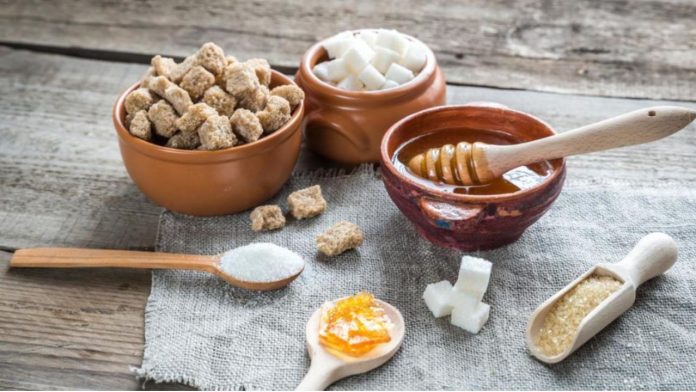In today’s times, when the risks of leading a sedentary lifestyle are becoming more apparent, individuals are becoming more aware of the foods and beverages they put into their bodies. Because it is common knowledge that meals like refined sugar, trans fats, and junk food have negative health effects, and because it is also common knowledge that these foods can be transformed into delicious recipes, many individuals hunt for alternatives to these foods in order to lower their chance of developing chronic diseases.
People often use honey, jaggery, or brown sugar in place of sugar since these sweeteners have important nutrients in addition to the calories they provide. These naturally occurring alternatives are likewise thought to be superior for the regulation of blood sugar levels. Jaggery and honey may offer nutritional advantages over sugar, but doctors caution that despite these advantages, they can still cause rises in blood sugar levels.
Which one of these sweeteners—sugar, honey, or jaggery—should you pick?
When only their calorie counts are taken into account, none of the three sweeteners—sugar, honey, or jaggery—stand out as being significantly superior than the others. They each add an additional number of calories to your daily intake. Therefore, if controlling your calorie intake is your primary concern, it is recommended to use these sweeteners sparingly or to consider other ways to sweeten your food and beverages, such as making advantage of the sweetness that naturally occurs in fruits or utilizing artificial sweeteners that have fewer calories.
The actual amount of jaggery and honey that you consume on a daily basis is often not adequate to make a major influence on your overall nutritional intake. This is the case despite the fact that jaggery and honey may contain somewhat more vitamins and minerals in comparison to refined sugar. In addition, the presence of adulterants in these items should serve as a crucial consideration when making a choice.
It is true that many individuals may rely on local stores that sell more affordable but often processed and less nutritious food because of the economic realities faced by a substantial percentage of the Indian population that belongs to the middle class. This is the case since local stores offer products that are less expensive. This circumstance can very well result in a diet that is high in calories that are of no nutritional value, which over time may contribute to a variety of health problems.
It is crucial for you to have a solid understanding of the workings of whatever sweetener you choose to use, whether it be jaggery, honey, sugar, or another kind.
Honey and jaggery are two types of sweeteners that are regarded as “superfoods” by some individuals due to the fact that they contain far fewer calories, in addition to a greater number of essential vitamins and minerals than sugar. However, all three of them have the same quantity of carbs (sugar), and the peak of blood glucose that results from consuming them in equal amounts will be the same. Additionally, when heated, the vitamin and mineral content of jaggery and honey will both evaporate, resulting in a lower overall content.
In addition to this, added sugars increase the amount of calories consumed, the sensory impact of meals, and overall enjoyment; yet, they are not necessary for maintaining good health or proper nutrition. They can take the place of foods that are high in nutrients, which can result in negative health effects since they supply calories but not other vital elements like vitamins, minerals, or other essential nutrients.
The most important takeaway is that using these alternatives does not give one permission to consume an unlimited amount of sweeteners. Adding less sugar to your diet and putting more of an emphasis on whole, minimally processed foods is the strategy that will help you consume less sugar overall.

 हिंदी
हिंदी






